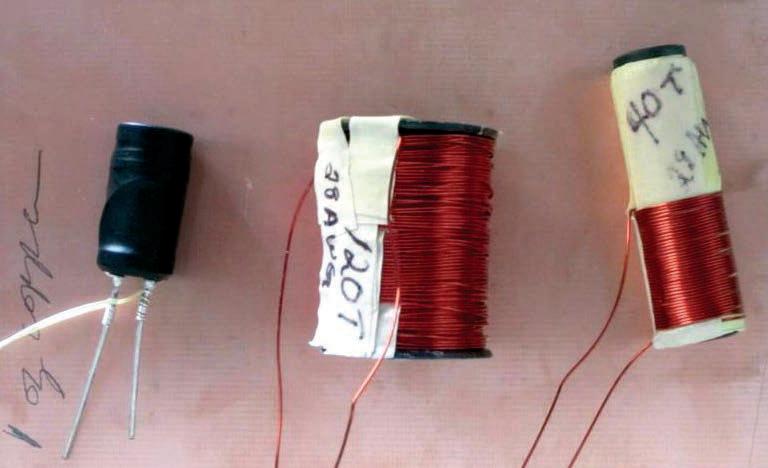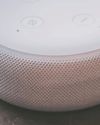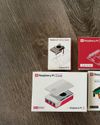
Eddy currents are swirling electrical currents created when a magnetic field is moved over a conducting metal, or the metal is moved through a magnetic field. George writes about his experiments using eddy currents to determine the layer thickness of copper on PCBs and aluminum and copper foils. He also describes a simple eddy current apparatus that he built using a PC, a single resistor, and a USB sound card to measure thickness.
Eddy currents are generated in a metallic object when a magnetizing coil with alternating current in its windings is brought close to the object. These remarkable eddy currents are one of the most extensively utilized electromagnetic concepts with applications including thickness measurement of metal plates or insulating coatings, detection of surface flaws or discontinuities, conductivity testing, and identification of metal alloys.
These methods provide low-cost, high-speed testing of metallic materials, without requiring direct coupling.
Over the years, many different techniques and devices have been used in these various applications. In this study I will focus on the ideas related to finding the thickness of a thin metal sheet or plate. Research has shown that there may be a direct way to achieve this goal. These efforts have led to the method employed here, which uses experimental data to determine how the terminal impedance of an eddy current (EC) sensor is related to a physical property of the material-in this case, the thickness of thin films. Here I focus on copper layer thickness on printed circuit boards (PCBs) and aluminum foil.
EC sensors can be very simple or complex depending on the job to be done.
For this project, single coil EC sensors were constructed. It was also found that lowcost, off-the-shelf devices could be easily repurposed for use as sensors.
Diese Geschichte stammt aus der December 2024-Ausgabe von Circuit Cellar.
Starten Sie Ihre 7-tägige kostenlose Testversion von Magzter GOLD, um auf Tausende kuratierte Premium-Storys sowie über 8.000 Zeitschriften und Zeitungen zuzugreifen.
Bereits Abonnent ? Anmelden
Diese Geschichte stammt aus der December 2024-Ausgabe von Circuit Cellar.
Starten Sie Ihre 7-tägige kostenlose Testversion von Magzter GOLD, um auf Tausende kuratierte Premium-Storys sowie über 8.000 Zeitschriften und Zeitungen zuzugreifen.
Bereits Abonnent? Anmelden

HSYCO Unveils New BACnet Server Driver for Enhanced Building Automation
HSYCO, a leading provider of integrated building management solutions, is excited to announce the release of its new BACnet Server driver.

Longsys Launches 7.2mm Subsize eMMC, Breaking the Physical Space Constraints of AI Wearables
In the design of wearable devices, every millimeter matters.

The Future of Voice-Enabled AI Industry Advancements in MEMS Microphones for Voice AI
Acoustic Activity Detection and High Acoustic Overload Point Transform Voice Interaction Advancements in MEMS microphones are enhancing voiceenabled AI technologies across various consumer electronics.

Exploring the RP2350 Security
Raspberry Pi's Novel \"Security through Transparency\" Approach

Learn Lisp Programming Using MCUS
Part 3—Forward Kinematics in µLisp

Pison and STMicroelectronics Announce Timex as Neural Sensor Partner, Ushering a New Era of Neurocognitive Wearables
Pison, the trailblazer in AI-powered neural sensors for neurocognitive health, wellness, and gesture control, announced it has begun licensing its innovative neural sensor to leading smartwatch and wearable brands.

Datasheet: DSPs and DSCs
Smarter Algorithms and Beyond

An Air Quality Monitor with a Blues Satellite Link Module
Brian had no sooner finished the review of Blues' LoRa Notecard when the new Starnote module was introduced. This module allows an IoT device to link to a geosynchronous satellite, for situations in which neither WiFi nor Cellular data links are operational. This article describes a project using the Starnote module.

Create an AI-Driven Smart Home Security System
Part 1- Setup and First Steps of the Raspberry Pi AI Kit

Wearable Devices Announces Availability of its Mudra Link Neural Gesture-Control Wristband
Wearable Devices, Ltd., announced the general availability of its Mudra Link, the first neural wristband for Android, macOS, and Windows devices.